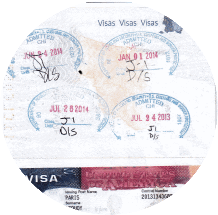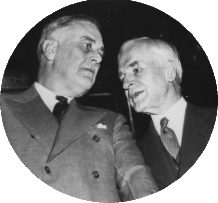The Cordell Hull Foundation provides the necessary documents and instructions for the exchange teacher candidate including a properly executed DS-2019 form. The teacher submits the application package to the nearest U.S. Embassy in the country of origin for approval of J-1 Visa status. The American Embassy charges two fees to process the visa. One is a visa “entrance” fee which is $140 in 2010. The SEVIS fee, paid separately online, is $180 in 2010. Check the American Embassy website of your country of origin for more details. See What costs do teachers incur after being accepted into the Teacher Exchange Program?
Applicants must make an appointment for an interview with a consular officer. J-1 visa stamps cannot be obtained anywhere in the United States, nor can you renew your J-1 visa inside the United States. Cordell Hull Foundation staff will consult with you for more detailed information and advice regarding changing visa procedures and policy in specific countries. Since the J-1 is a non-immigrant visa, the burden of proving “non-intention to immigrate” falls upon the teacher applicant. In countries where the preponderance of non-immigrant visa applicants do not return to their home countries, that burden of proof is heavier. Canadians are currently exempted from going to the American Embassy for J-1 visa stamps but will lose that privilege in two years. Most European and Anglophone countries require only basic visa support documents from CHF and the standard Embassy application forms. Consular Office (visa) procedures and policies change frequently and without notice. If you are accepted into our program, CHF will consult with you on an individual basis, offering tips on how to navigate the ever-increasingly complicated visa process.
You cannot request – nor renew – a J-1 visa passport stamp in the United States – you must request it from a US Embassy abroad, in another country.






